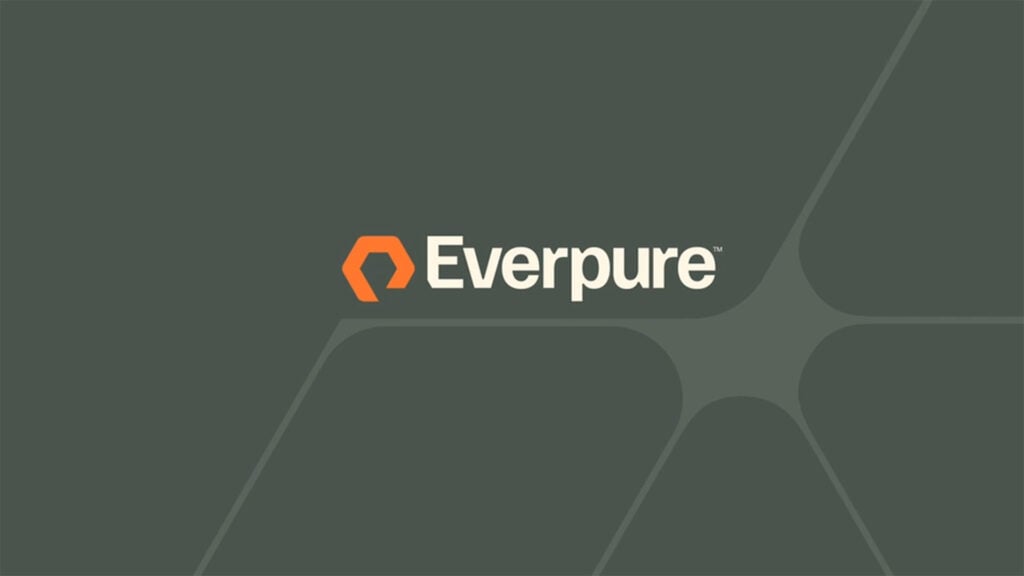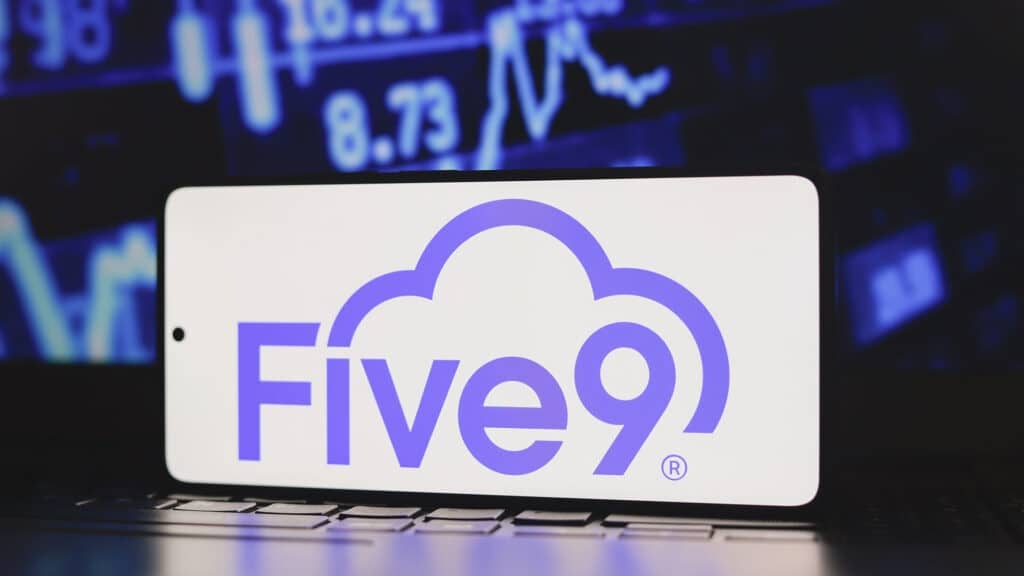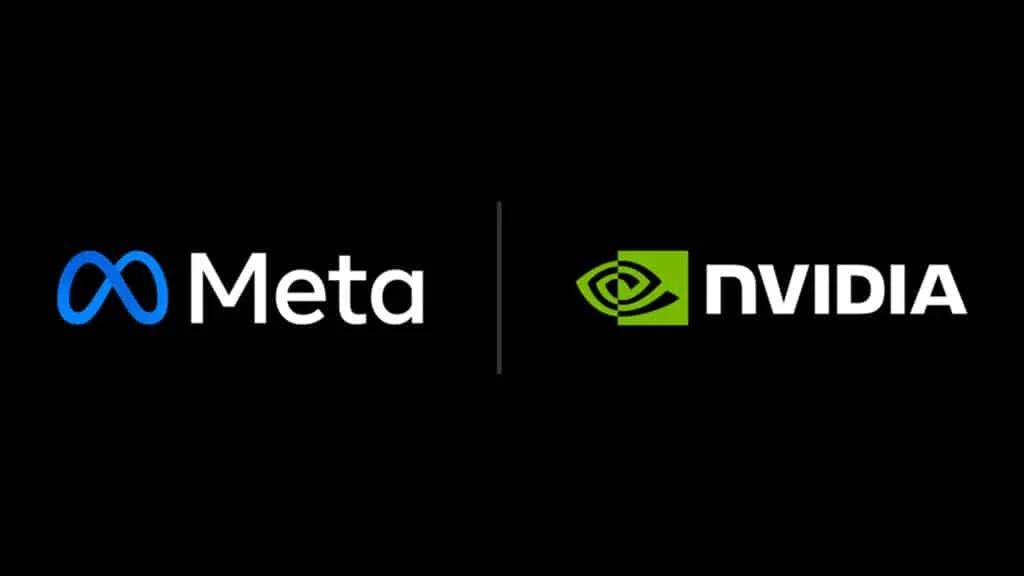How can organizations scale AI with confidence? 🤔 Patrick Moorhead and Daniel Newman are joined by Dell Technologies’ COO and Vice Chairman, Jeff Clarke, at Dell Tech World to discuss how their teams are helping to advance Enterprise AI and their unique approach to empowering organizations to scale AI initiatives confidently.
Key takeaways include:
🔹Dell’s Distinctive AI Approach: The discussion highlighted the key factors contributing to Dell’s significant progress in Enterprise AI, emphasizing the unique elements of Dell’s strategy for AI adoption.
🔹The Dell AI Factory in Action: An in-depth look at how the Dell AI Factory is streamlining the complexities of AI implementation, showcasing the tangible results and benefits it delivers for customers.
🔹Navigating AI Adoption Challenges: Insights were shared on current AI adoption trends among customers and partners, the hurdles they encounter, and how Dell Technologies provides comprehensive support throughout their AI journey.
🔹The Promise of Agentic AI: The conversation delved into the emergence and evolution of AI Agents, exploring their potential to revolutionize business operations and drive human progress.
Learn more at Dell Technologies.
Watch the full video at Six Five Media, and be sure to subscribe to our YouTube channel, so you never miss an episode.
Or listen to the audio here:
Disclaimer: Six Five On The Road is for information and entertainment purposes only. Over the course of this webcast, we may talk about companies that are publicly traded, and we may even reference that fact and their equity share price, but please do not take anything that we say as a recommendation about what you should do with your investment dollars. We are not investment advisors, and we ask that you do not treat us as such.
Transcript:
Patrick Moorhead: The Six Five is On The Road here in Las Vegas. We’re at Dell Tech World 2025. It has been a great event so far. And we heard, we’re hearing about hardware, software, wrapping the bow around services and oh, shocking. We’re talking a lot about AI here.
Daniel Newman: Well, we knew that was going to happen coming into this, Pat, but it’s been a year of just continual innovation, continued progress. Last year at Dell Technologies World, we heard a lot. The AI factory was in full bloom. But we knew that you got to keep on innovating. I mean, think about how far, how fast we’ve come. Last year we were talking about generative AI. This year we’re talking about agents, we’re talking about physical AI, we’re talking about taking it to the edge, bringing on devices and we’re getting a little bit of all that here.
Patrick Moorhead: Yeah, we are. And in the end, it’s about making it real for customers. Whether that’s consumers, enterprises, small and medium businesses making it real. And that was actually, I would say, the theme of Jeff Clarke’s keynote that he gave today. And hey, surprisingly we have Jeff on here to chat with him. Good to see you, my friend.
Jeff Clarke: Thanks for having me.
Patrick Moorhead: Yeah, absolutely.
Daniel Newman: I’ll get you from afar. Yeah, it’s great to have you back. You know, love making this a bit of an annual thing with you here.
Patrick Moorhead: We have to start though with where Jeff was yesterday and where he is today.
Daniel Newman: I was actually about to make a joke. This is Agent Jeff. Okay, we don’t have Jeff. Jeff’s still in Taipei now, Jeff, were you. I mean at least part of you, part of you is there. But I mean, this is one of those weeks where Dell and of course you got Computex. A whole bunch of your big partners are having events. This is a mega week. But you did just come back from overseas. I mean, your eyes are open. But are you here with us today? Are you feeling good?
Jeff Clarke: Yeah, I was at GTC yesterday. Jensen invited me to come out to speak at the pre game and reminisce on the history of our industry. How do you say no?
Patrick Moorhead: You can’t. It’s hard.
Daniel Newman: Can’t say no to him now.
Jeff Clarke: Well, it’s just a heck of an opportunity.
Patrick Moorhead: Yeah.
Jeff Clarke: And then I kind of got in about 8 o’ clock last night. And I’m here today after a keynote.
Patrick Moorhead: I’m glad this is real Jeff, not Agent Jeff, everybody. So we’re in. We got the real deal now.
Jeff Clarke: I am looking forward to an agent doing my keynote in the future so I can mail it in.
Patrick Moorhead: I think you need a sixth workflow for your AI journey, Jeff, so add that to it.
Daniel Newman: We are very excited for the day that an agent can do all of our work as long as we still keep, get to keep all the money. You know, that’s, that’s the part that we’re trying to sort out though. But you know, as we talk about ages. Right, like, I’m with you, you know, let’s talk about this though, a little bit because we have seen this proliferation. It’s gone really quick. We’re talking about trillions of tokens now. We’re talking about systems talking to systems. We are talking about parts of our work being done autonomously with sometimes us in the loop, sometimes not in the loop. You were all about kind of bringing use cases and POCs to life in your, in your keynote talk a little bit about kind of how you see this agent evolution taking place and kind of what are the opportunities you’re seeing open up, opening up for business?
Jeff Clarke: I think many leap to. It’s very complex and it’s not well understood. I think of it, or tend to think of it very basically. And I tried to carve out or illustrate a few examples today. Ultimately, we’re creating a digital workforce. And how does that digital workforce get enabled to do tasks? We’ve been around the block long enough to reminisce that historically, product guys built products, services people built services, IT management people built IT management things. And then we left it to whomever to make it all work together. And while we’ve become more sophisticated over time, there’s still relatively three different fiefdoms or three different areas. What I tried to describe on stage today is that canvas becomes clean in the world of Ajax as we embed agents into our products, embed agents into our services. Agents get embedded into the management or orchestration applications. They begin to work together and increasingly more so autonomous. That’s powerful. Imagine now the intelligence inside a device, whether it’s a large array, whether it’s a cluster of GPUs.
Daniel Newman: Right.
Jeff Clarke: Or a PC.
Patrick Moorhead: Yes.
Jeff Clarke: Can now communicate it’s having a problem. Proactively intercepted by a service agent. Ours to understand what’s going on and dispatch a part before anybody needs to know. Right. It solves itself. Now extrapolate that to many other use cases. In our factory, we now have factory planners who used to go around with clipboards. Then they advanced to Excel as we digitized our supply chain. You can manage or imagine the orchestration of planning and forecasting being taken over by agents. And then we actually augment that by putting a digital twin in place that the agents between the two digital twins work in the scheduling, forecasting and planning to do scenario. What ifs. Oh my gosh, yes. Think about every sort of use case in business today, whether that’s in a hospital, other forms of manufacturing, transportation. Those processes today that are largely manually done with lots of manual handoffs get digitized and instead of digital workers work them. I think that’s a game changer. It’s yet another disruptive nature of generative AI and what’s to come.
Patrick Moorhead: Yeah, I appreciate you bringing it to life, Jeff. I mean, first of all, you’re customer zero for your technology and I do feel like you took an extra step forward, forward with your disclosures on what you’re actually doing. I know, I appreciated it. I mean Daniel and I go from, you know, we’re like the tech clown show that goes from tech show to tech show. And we’re hearing all these stories of how people are doing these things. And I thought yours was very easy to understand and also valuable. I think the three of us are very much tech optimists on what AI is going to do. I’m a history buff and I look historically at the fear of certain technologies and what it actually ended up doing to society and the net 99 out of 100 were a net positive. Of course there’s not a whole lot of people. Well, I think I’d like to know just how are you looking at or how does Dell get into the position to progress humanity forward? Because I know it’s more than just. I mean the bottom line is important, but progressing humanity forward with AI.
Jeff Clarke: Think of the big outcomes that can come of this. Do you think we can eventually cure cancer?
Patrick Moorhead: Likely.
Jeff Clarke: Can we make disease go away?
Patrick Moorhead: More than likely.
Jeff Clarke: How about those two?
Patrick Moorhead: No, those are, those are. Listen, I’m a tech optimist. You had me at generative AI, but I think more people need to look at the glass half full when it comes to this. The industrial revolution, we were starving in and all working in fields. Then we had specialization inside of factories that sped up the ability to make more food and make more electricity and make better drugs. But there were the same types of conversations then.
Jeff Clarke: Think about what happened. You took a largely artisan manufacturing one, you built things by one. Yes, we had an agricultural society, we moved to the cities. We created this as a byproduct of the industrial Revolution, you added power, steam, then electricity. You now begin to scale manufacturing. You reduce the cost of goods. Yes. More goods are produced. RSR society consumes that. The byproducts of the social side of this became better. Working conditions became better over time. We retrained the workforce. That’s what we did today. This is the same thing. We’re going to retrain the workforce. You have to understand AI just as if you would have to understand what was changing. 300 plus years ago. This is that scale, that impact. How could you not like it and get excited about it?
Daniel Newman: I think it’s really exciting. My kids. Well, my oldest is in college, my youngest is in elementary school. Let’s not talk about how that happened. But like, you know, there’s a lot of things that have come up though recently, Jeff, where it’s like, you know, we’ll talk about a car and someone will be like, well, you know, Matthew, my son, would you like that car? And I kind of look at him like, there won’t be cars when you’re driving, you know, not the way you’re not going to drive in cars. Like I drove cars, you know, or like jobs. Right. When we went to college, you know, we, a lot of us, wanted to be an engineer. And you kind of look at how AI is changing things. So, you know, as techno optimists, it’s like I look at the future and I’m always using the kind of this data point, Jeff, that’s like every industrial revolution has created more, not less jobs. Like history has always proven that. Having said that, every time we run into these industrial revolutions, even us, even the most optimistic kind of look at this and go like, I don’t think I need an analyst anymore. Like, I think I can use deep research. And we joke because there’s obviously all this nuance.
Jeff Clarke: But like when you get your role of analyst changed. Right. Some of the work you used to do may be replaced. Yeah, but then you will move to the next level of work and you may be orchestrating the agents. You may be determining what outcomes you’re looking for. You provide the conscience to them and what behaviors they will follow. I think it’s a change and people don’t like change. We kind of like the way that it is. But you mentioned cars. It’s highly unlikely in our children’s generation. By the end of it, no one will drive a car anymore. Everything will be an autonomous driving car. Will they be safer?
Patrick Moorhead: Yes.
Jeff Clarke: Without Question.
Patrick Moorhead: Oh, I mean, they are today.
Daniel Newman: We should all be super enthusiastic. But even the, you know, even the biggest technology optimists on the planet, you know, like an Elon Musk, you know, there’s a little bit of that. What’s the risk of AI? Like we won’t talk about the existential people, the world enders. I think we would largely agree on this stage that we don’t agree with, with their, their beliefs. But we will make drug discovery better, we will make health care better, we will make education better. We’ll. Kids will learn in two hours a day what they used to take eight and 10 hours a day, how we reapply that time. You know, you do hear the people that are like, oh, we’re going to need UBI because there’s no jobs. Everybody’s going to need to just make money while optimous robots run around us and do all the stuff that we used to do.
So I think there is a role though to play for companies like yours that has so much influence on society, that works with so many companies to help us paint that picture of this better future and the roles that. To Pat’s question that the humans have to play. I think, I think it’s an increasingly interesting question that I think all of us would agree and I’d love to get more of your take on this. It will end well, but it isn’t as obvious because the changes happen so fast as to what all those new roles, new changes. What do doctors do when they have those hours back they’re not spending chasing the administrative and bureaucratics parts because not like it’s exciting, but it is, it’s mysterious.
Jeff Clarke: Well then you have policymakers that will have an opinion.
Daniel Newman: Do we need policymakers?
Patrick Moorhead: I don’t know. Do we?
Jeff Clarke: Don’t think it’s on film. We’re not. I’m not going down that rabbit hole.
Patrick Moorhead: I’m going to, I’m going to have this conversation.
Daniel Newman: Get me back on topic here.
Patrick Moorhead: So, Jeff, there’s been a lot of the themes here about making AI easier, right? I mean this stuff is hard. I know you love all your children equally, maybe you don’t, but when it comes to your tech innovations that you’re bringing out, how are you making AI easier for your customers?
Jeff Clarke: Well, I think there are a couple of themes to think about. So one, all of the examples that I gave today, we just talked about what we’re internally applying AI to. We’ve actually brought our professional services organization in at day zero and they’ve either helped us do assessments that we’ve built their skill and capability along our journey so they can take that to our customers. So the involvement of the folks that talk to our customers, they ultimately have to help them go. Here’s what an AI strategy is. Here’s what a data strategy is. Here’s how you cleanse your data, here’s how you ingest your data. Here’s day two operations. They’ve learned from us doing it, and we’ve taken that. And then we also work with a vast partner of a vast set of partners to bring that capability.
So that’s one element of this. The second element is everything that we’ve learned in building these large clusters in the world, we’ve actually scaled down into making it easier for enterprises to deploy the infrastructure. And then I think the other important element of this goes down the path of ultimately we have to make it easier. It’s a mantra that I drive inside the organization. Deploying AI needs to be easy and easier. So now think about how you take the technology. And I know this isn’t a word, so I’m going to make it up. We’re going to appliance size, I think about rag in a box, chatbot in a box, agent in a box, little box for little edge deployments, bigger box for data center, bigger, bigger boxes for hyperscalers, CSP type capabilities. So then you begin to bring the integration of the software stack, the model stack, and the infrastructure to make it easier. Add blueprints, add a bunch of lessons learned. You probably provide your customers and that’s the path and journey we’re on.
Daniel Newman: And it’s going to abstract itself so much quicker. Right. Like, as I listen to you describe this, and we’ve had this talk, Pat, but like, in some ways, Agentic becomes SaaS of the future. We’ve heard lots of CEOs talking about the deprecation of CRUD databases and software. And then in the future, agents will abstract new experiences in real time that’ll basically be prompt generated enterprise tools. I mean, this is, you know, I don’t know what’s your vision? I mean, I know we only got a couple of minutes here, but is this kind of. It seems like this is kind of how it’s playing out, as a lot of the tools and software we use are going to change very quickly.
Jeff Clarke: I think the tools are changing and SaaS is certainly being redefined. Certainly. We believe we’ve been saying this a number of times, AI follows the data. Data is created out in the wild. And customers are not going to want to part with what they believe is their intellectual property, their secret sauce, their trade secrets. And I think there’s an abstraction of SaaS , a data plane that’s going to stay on prem.
Patrick Moorhead: Yeah. One thing you definitely turn the contrast ratio up. You and Michael. That I do appreciate it by the way because it’s the truth that you don’t have to put all the data up in the cloud to get all this magic. Now just to be clear, every major hyperscaler with the exception of Google is saying that the only place you can do the magic is having those conversations with the highest levels of these companies. BUTI talked to every CIO I talked to and the CEO that says I am not truckloading everything up there.
Jeff Clarke: It’s just ____. You can do this on prem. If it’s your proprietary information, something that you believe that’s domain specific to you that makes you who you are. Yeah. Why would you ever part with it? You were in a position where much of the world’s mission critical data is stored on our storage products. That information is not going to be pumped up. Could you imagine the service example that I gave today that I put up in the. The public cloud gives my customer information away, what problems we’re having, how we solve them, where the parts go. Never do that.
Patrick Moorhead: Yeah. And the big, you know, one of the biggest things that I saw on your stage today was creating your own platforms when you needed it. You have the Dell data platform and you know, I’ve been asking for that for three years. You delivered it and thank you and your customers. Thank you. But you also brought in partners to do this. We had cohere with North on stage. You have Gemini running their state of the art models that are really good now they weren’t before on premises, unplugged and firewalled. And that’s. That’s important building blocks.
Jeff Clarke: Spend some time with Aidan pulling the coherent model on prem.
Patrick Moorhead: Yeah, yeah, yeah.
Daniel Newman: What you did with Google for instance is, you know, bringing Gemini on prem is a great example of how cloud on premises, you know, infrastructure providers can actually bring. It’s almost the opposite. You’re bringing the generative AI to the data that lives on prem. I mean different stats. Pat, we’ve kicked around 99% of enterprise data that hasn’t been touched by AI. You know, most enterprise data lives on prem. I mean the vast majority. So I mean those two data points.
Jeff Clarke: Alone 83% of all data is on prem. Half of it’s out at the edge. I don’t see that materially changing now. I’m not suggesting it’s all on prem either. We think it’s hybrid. There’s a continuum. Companies will make conscious choices of what stays on prem and what they’re comfortable using outside of their four walls to be. That’s how we. We’ve done it. That’s what we model and foresee. And it’s just so obvious from what we did in the cloud era that this happens again. It’s hybrid cloud. It’s going to be hybrid AI.
Patrick Moorhead: Jeff, is there anything we didn’t ask you that you thought we would ask that we should have asked that. You want to get out to all the. All your customers, employees, potential customers.
Daniel Newman: You didn’t have a keynote to tell everyone yet.
Patrick Moorhead: Well, maybe they missed the keynote.
Daniel Newman: Okay, we’re going to share this on our platforms. We got a lot of.
Jeff Clarke: Of people watching, so I think we’ve covered a lot of ground. Okay. I appreciate the time today, as always.
Patrick Moorhead: Yes.
Jeff Clarke: Make it fun, make it real.
Patrick Moorhead: Yes, absolutely.
Jeff Clarke: Thank you.
Daniel Newman: All right, Jeff. Well, thank you so much for joining us here on the six five. Let’s do this often, let’s do this more regularly. Lot to share. And by the way, it’s changing so fast, so we want to make sure we get it out there for everybody. We’ll be talking about physical AI and humanoids in a year. I think we’ll be talking more about that. So great year, great stuff. Thanks for joining us and thank you, everybody, for being part of the 6.5 on the road here in Las Vegas at Dell Technologies World. We’re gonna take a little break, but we’ll be back with you shortly.
Author Information
Daniel is the CEO of The Futurum Group. Living his life at the intersection of people and technology, Daniel works with the world’s largest technology brands exploring Digital Transformation and how it is influencing the enterprise.
From the leading edge of AI to global technology policy, Daniel makes the connections between business, people and tech that are required for companies to benefit most from their technology investments. Daniel is a top 5 globally ranked industry analyst and his ideas are regularly cited or shared in television appearances by CNBC, Bloomberg, Wall Street Journal and hundreds of other sites around the world.
A 7x Best-Selling Author including his most recent book “Human/Machine.” Daniel is also a Forbes and MarketWatch (Dow Jones) contributor.
An MBA and Former Graduate Adjunct Faculty, Daniel is an Austin Texas transplant after 40 years in Chicago. His speaking takes him around the world each year as he shares his vision of the role technology will play in our future.












